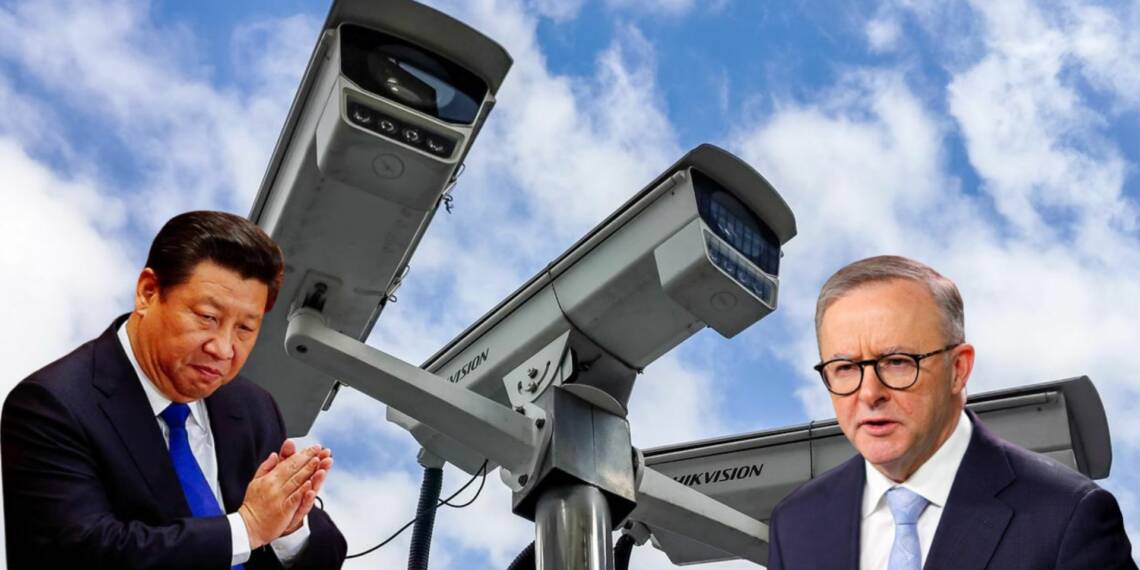Australia to remove Chinese cameras: Australia has took the decision to look into and remove Chinese-manufactured surveillance (Chinese cameras) equipment from public buildings.
The cameras, which are built in China, may pose a security danger for the nation, according to Defense Minister Richard Marles.
Over 250 Australian government buildings now have at least 913 cameras, intercoms, electronic entry systems, and video recorders thanks to two businesses, Hikvision and Dahua.
Both of these companies are partly owned by the CCP.
The Chinese government owns a portion of each business. James Paterson, who is a shadow minister for cyber security in the Australian government, asked for the audit because “we would have no way of knowing if the sensitive information, photos, and audio acquired by these devices are secretly being transferred back to China against the interests of Australian citizens.”
Read more: Mongolia’s biggest shock to China is here
The audits followed Britain’s announcement in November that it would halt installing surveillance cameras with Chinese connections in sensitive structures.
Several Chinese technology companies’ vendors and products have also been outlawed in some US states.
In practically every government agency in Australia, with the exceptions of the department of agriculture and the Prime Minister Office and cabinet, equipment from at least one of the two Chinese corporations was found, according to an audit.
Read more: China comes up with a bizarre idea to overcome demographic challenges
Australia to remove Chinese cameras – China’s response
Beijing accused Australia on 9th February with misusing its national might to discriminate against and prosecute Chinese companies. Similarly, Hikvision stated that it is completely wrong to depict the firm as a national security threat because it is unable to offer cloud storage, access video data or handle user databases in Australia.
China’s Foreign Ministry spokesman Mao Ning stated, “We hope Australia would create a fair, reasonable, and nondiscriminatory environment for the normal activities of Chinese firms.”
According to shadow Minister of Cyber Security James Paterson, both businesses must work with Chinese intelligence, who claims that they are both subject to the national intelligence law of China.
Similar scenarios have usually resulted in China defending its high-tech businesses and portraying them as ethical businesses that don’t participate in intelligence gathering.







